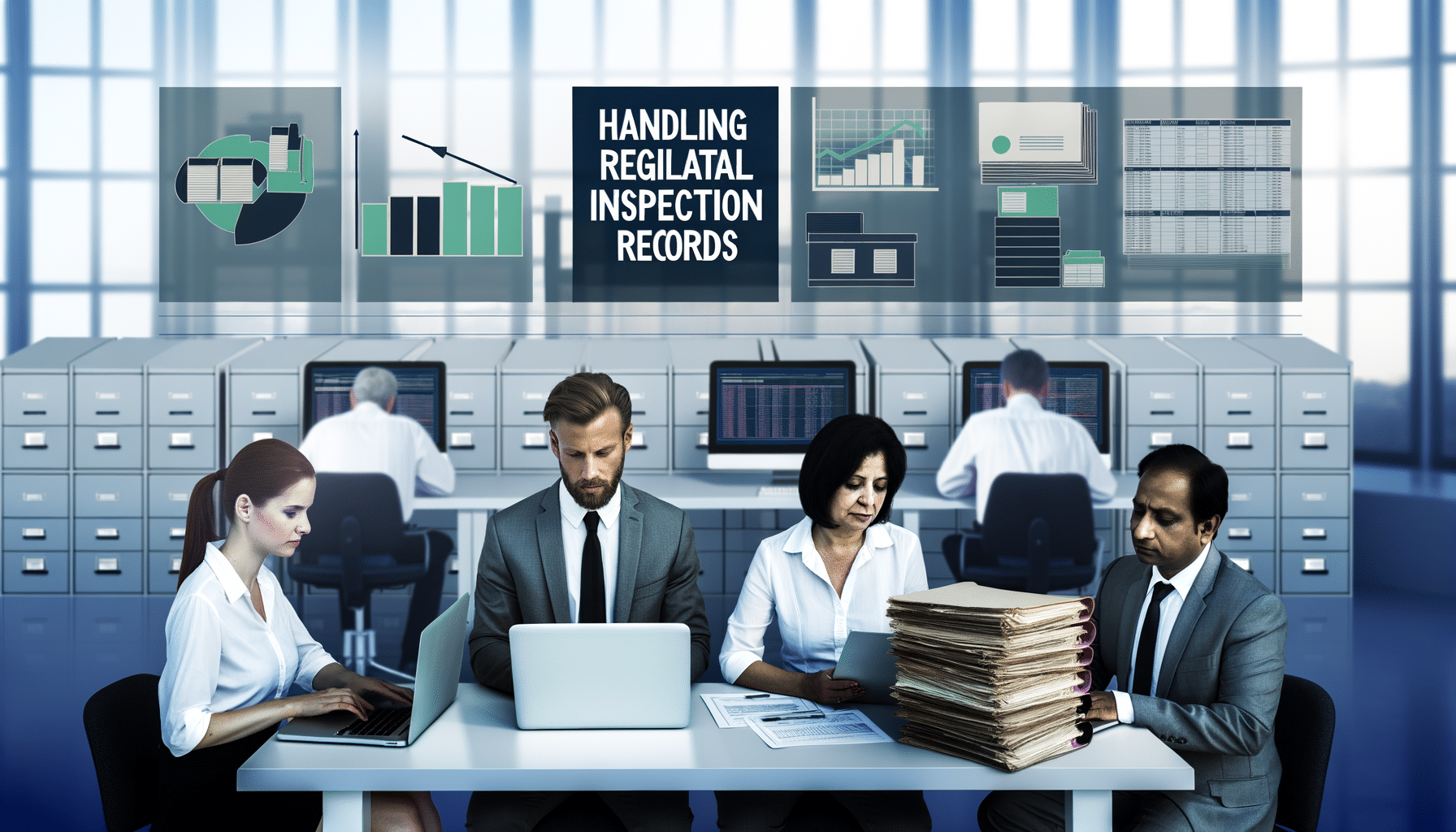- Blockchain Compliance
- November 17, 2024
Creating Effective Record Audit Trails

Understanding the Importance of Record Audit Trails
In today’s fast-paced digital world, the implementation of effective audit trails in record management has become not just a need, but a necessity. As someone who has been deeply involved in the realm of record keeping, I’ve seen how the role of audit trails has evolved from a mere verification tool to a strategic element that drives compliance, clarity, and confidence in data handling. This transformation is critical for organizations aiming to uphold transparency and accountability.
The Core Value of Audit Trails
Audit trails are at the heart of ensuring integrity in record management systems. They act as a chronological log of all activities related to records, capturing who performed what action and when. This dynamic history is invaluable in various sectors—especially compliance, legal, and finance—where records play a pivotal role in daily operations.
Audit trails enhance operational efficiencies by simplifying the task of identifying unusual or unauthorized activities. They provide a detailed timeline of actions, making it easier for organizations to track changes and implement corrective measures.
Crafting Comprehensive Audit Trails
For organizations aiming to improve their audit processes, here’s how you can create meaningful audit trails:
1. Define Clear Objectives: Begin by outlining what you aim to achieve with your audit trails. Are they for compliance, security, or improving process efficiency? Clear objectives guide the design of the audit mechanism.
2. Choose the Right Technology: Investing in technology that seamlessly integrates with your existing systems is crucial. Platforms like RecordsKeeper.AI offer robust audit trail features that integrate with various types of record management systems, ensuring seamless data capture and monitoring.
3. Automate Data Capture: Modern tools enable automated data capture, ensuring that every record’s action is logged without manual intervention. This reduces the chance of human error and allows for more accurate trails.
4. Implement Stringent Access Controls: Limit access to sensitive data by setting up user roles and permissions. This helps in preventing unauthorized access and provides clarity on who interacted with the records.
5. Conduct Regular Reviews: Regular audits of the audit trails themselves help in identifying any loopholes or irregularities in the system. This proactive approach enhances the reliability of your records.
Ensuring Compliance Through Audit Trails
Compliant audit trails play a pivotal role in meeting regulatory standards such as GDPR, HIPAA, and SOX. By maintaining detailed logs of data access and changes, organizations can demonstrate their commitment to protecting sensitive information. This not only avoids hefty fines but also builds trust with stakeholders.
For our platform at RecordsKeeper.AI, ensuring compliance is a fundamental promise. Our solutions are designed with the latest compliance requirements in mind, providing a secure environment where records are not only stored but also protected by immutable audit trails. Through blockchain integration, we guarantee data integrity and prevent unauthorized modifications, a key feature for compliance experts.
Beyond Compliance: The Strategic Advantages of Audit Trails
While compliance is an obvious benefit of audit trails, there are additional strategic advantages to consider:
• Enhanced Decision Making: Audit trails provide valuable insights into the historical performance and decision-making within an organization. Leaders can utilize this data to optimize processes and drive strategic initiatives.
• Improved Collaboration: With clear records of who accessed what and when, teams can collaborate more effectively without ambiguity. Transparency fosters collaboration, reducing the chances of miscommunication and errors.
• Risk Management: By offering a detailed account of record interactions, organizations can quickly detect and address potential security threats or breaches, thus minimizing risks.
Conclusion: Taking Action for Better Record Management
Incorporating effective audit trails into your record management strategy is no longer optional; it’s essential for any organization looking to stay competitive and compliant. These systems not only safeguard data integrity but also enhance operational efficiency and strategic planning.
I encourage you to explore how platforms like RecordsKeeper.AI can modernize your record management processes. With a focus on compliance, security, and efficacy, we help you turn what might seem like a daunting task into a strategic advantage.
For more insights or to learn about how RecordsKeeper.AI can assist your organization in crafting robust audit trails, feel free to reach out or follow my journey through entrepreneurship and innovation. Together, we can pave the pathway to a future where records are not just maintained but are a source of strength and insight.
Toshendra Sharma is the visionary founder and CEO of RecordsKeeper.AI, spearheading the fusion of AI and blockchain to redefine enterprise record management. With a groundbreaking approach to solving complex business challenges, Toshendra combines deep expertise in blockchain and artificial intelligence with an acute understanding of enterprise compliance and security needs.
Related Posts


Handling Regulatory Inspection Records
Managing documentation for regulatory compliance.
- January 3, 2025
Archives
- January 2025
- December 2024
- November 2024
- October 2024
- September 2024
- August 2024
- July 2024
- June 2024
- May 2024
- April 2024
- March 2024
- February 2024
- January 2024
- December 2023
- November 2023
- October 2023
- September 2023
- August 2023
- July 2023
- June 2023
- May 2023
- April 2023
- March 2023
- February 2023
- January 2023
- December 2022
- November 2022
- October 2022
- September 2022
Want to get more content like this?
Signup to directly get this type of content to your inbox!!
Latest Post
Document Control for Equipment Maintenance
- January 20, 2025
Managing Records for Multiple Clients
- January 19, 2025
Handling Conference Documentation
- January 18, 2025
Setting Up Department Record Reviews
- January 17, 2025





